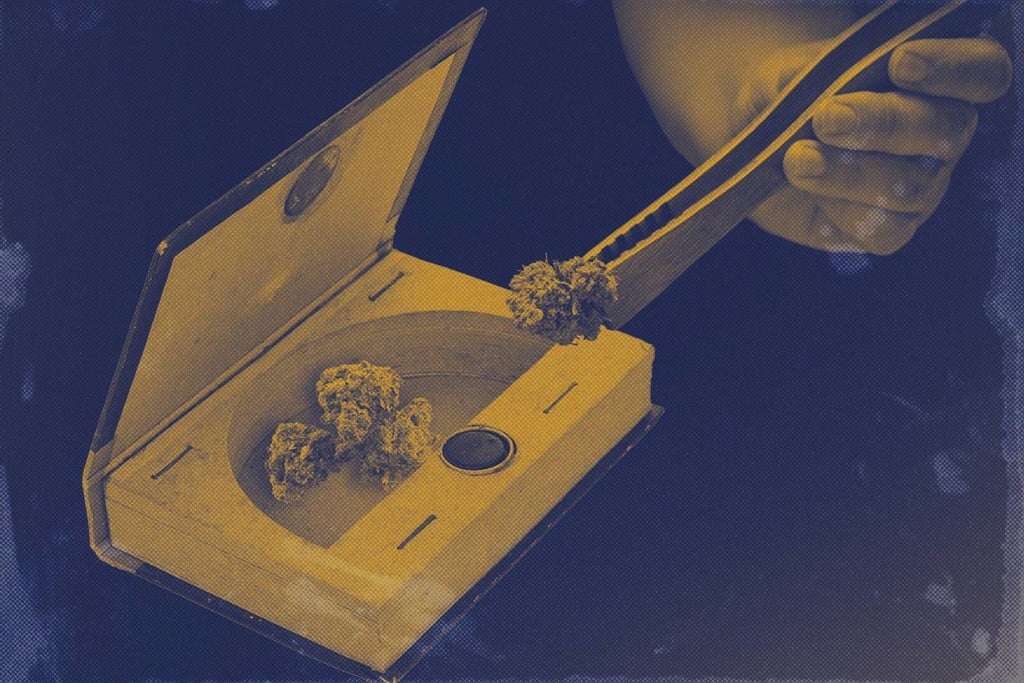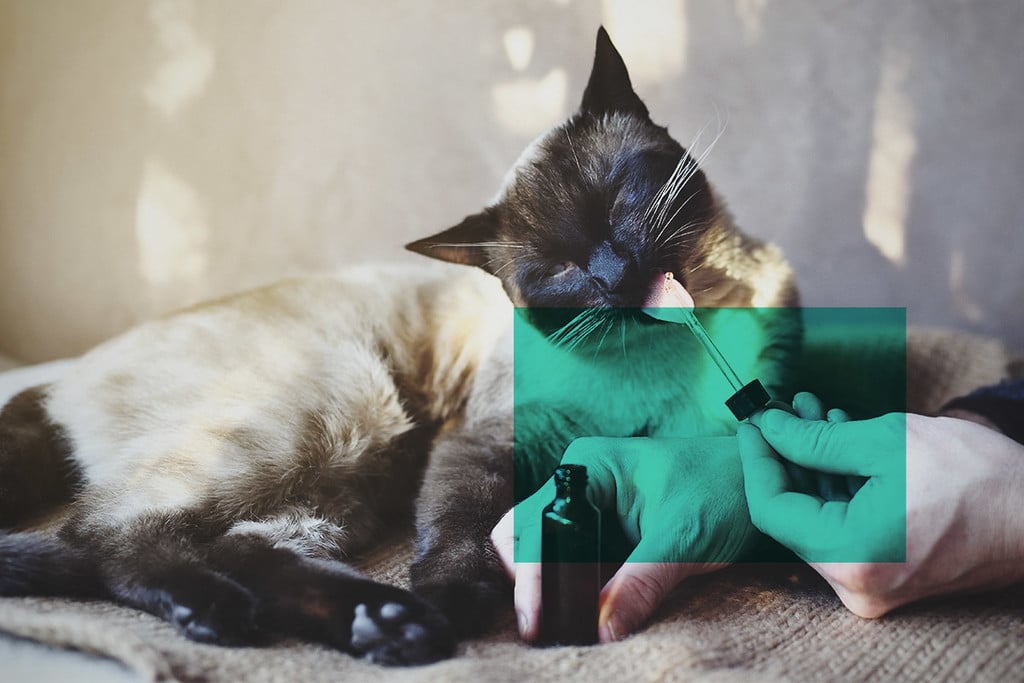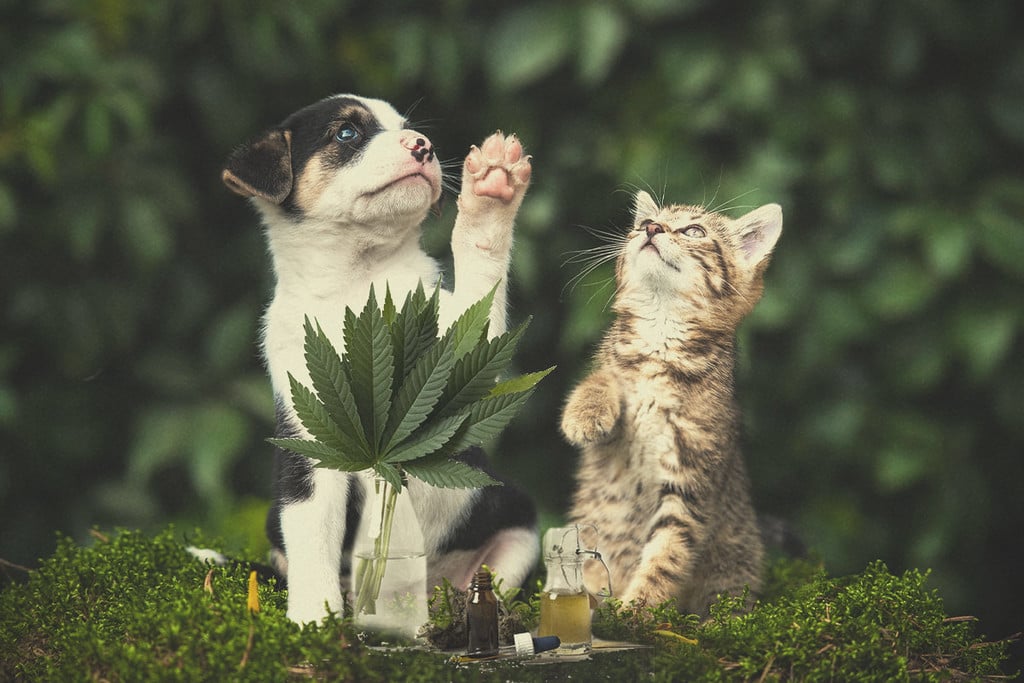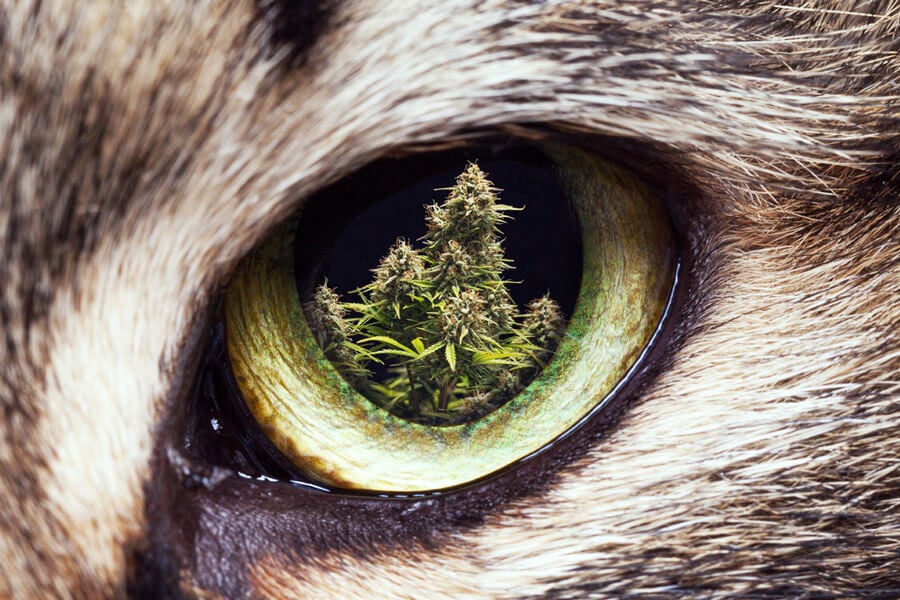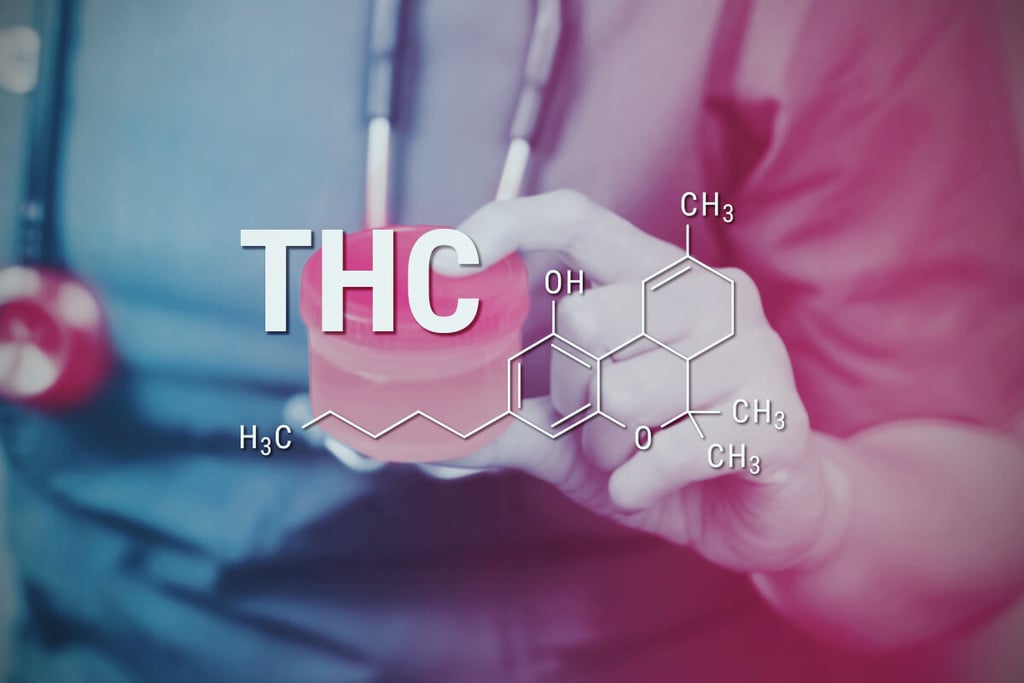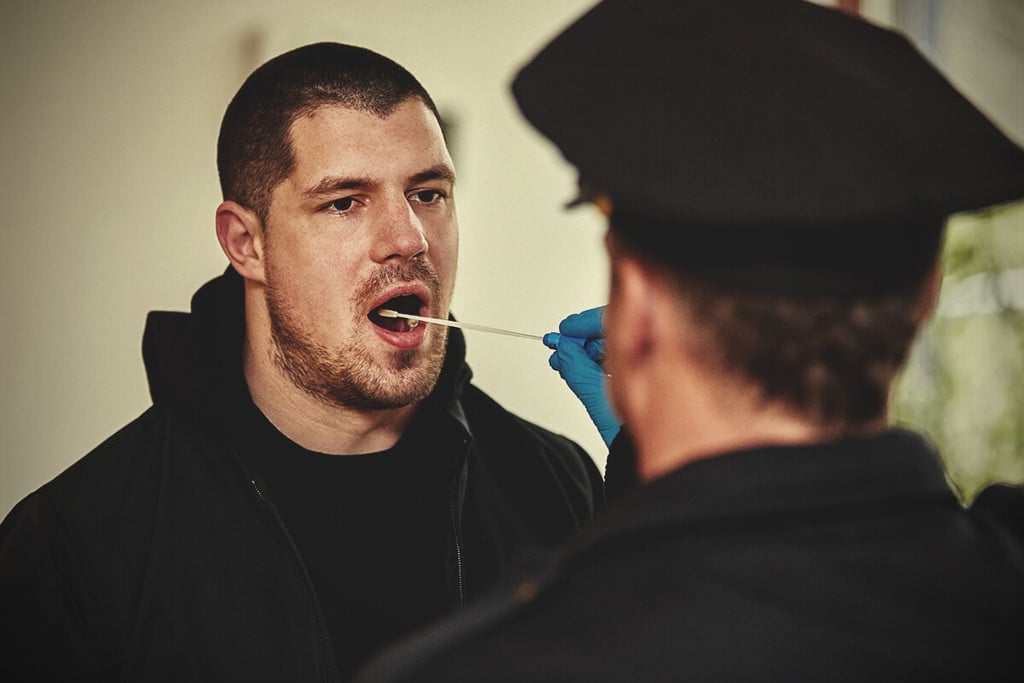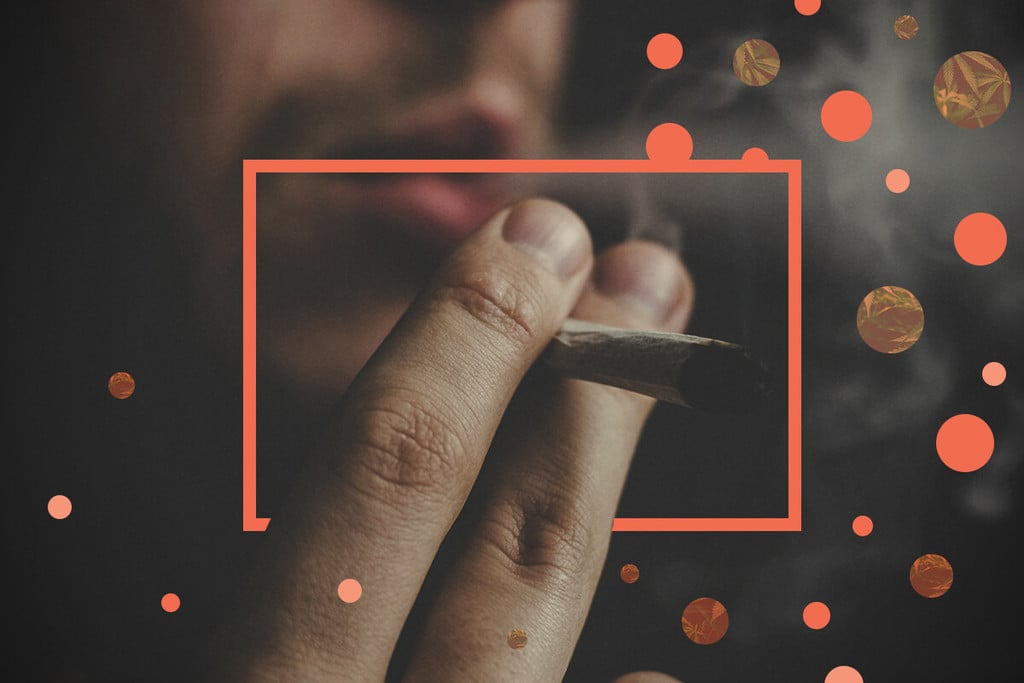.
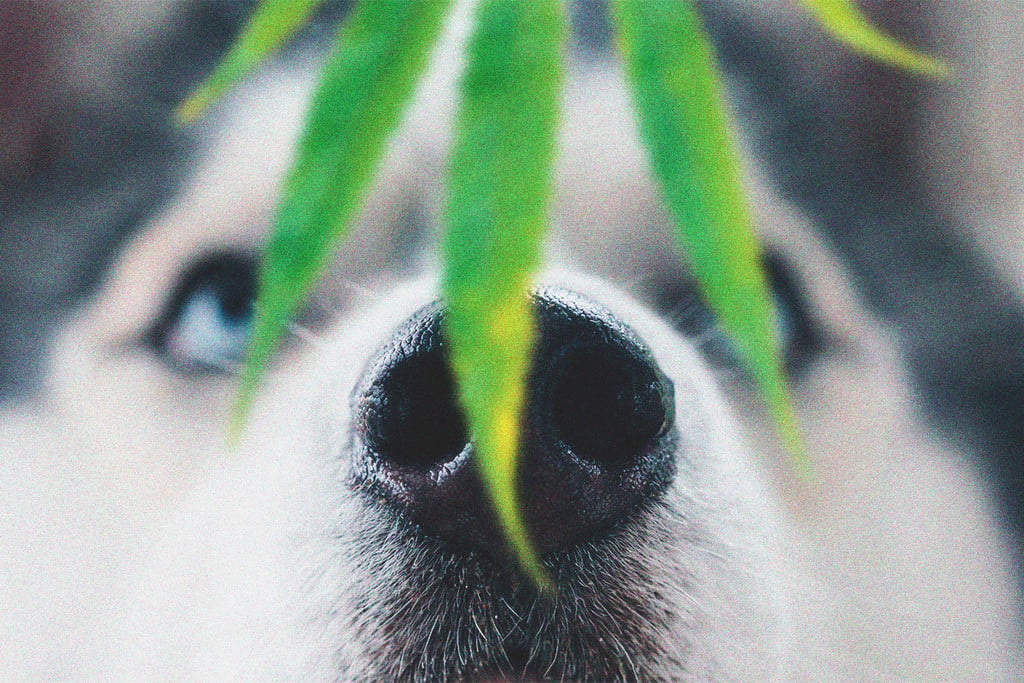
Pets And Cannabis Toxicity: What To Do If Your Dog Gets High
Did your dog eat an edible? Or were they sleeping in the corner of the room while you and your friends smoked untold amounts of joints? If your pooch seems lethargic, drowsy, or even unconscious, you need to get them to the vet right away. Cannabis—specifically THC—has a toxic effect on our canine companions. These are the steps you need to take.
Key Takeaways
- Dogs can get high from THC—and because they have more CB1 receptors than humans, the effects can be much stronger and sometimes toxic.
- The biggest risks come from edibles (often also containing chocolate) and secondhand smoke; even raw weed can make dogs sick.
- If you suspect THC exposure, don’t wait—contact a vet, follow their advice, and keep your dog calm and comfortable while symptoms pass.
Contents:
- Can dogs get high?
- How do dogs get accidentally high?
- What happens if your dog eats weed?
- What to do if your dog gets high
- How do vets treat dogs that ate weed?
- What to do once you’re home
- How to help your dog recover from being high
- Tips for owners to remain calm
- Cannabis toxicity in cats
- Preventing your pets from accessing cannabis
- Medicinal cannabis for pets
Psychoactive substances have a rich past within human history. Many different cultures all across the world seem to have held at least one type of psychoactive substance, from mushrooms and vines to booze and cacti, in high esteem. To this day, humans maintain a close relationship with altered states of consciousness, whether that be for personal development or addictive fulfilment. It’s interesting to note that humans are not alone in the quest for an altered state of consciousness. Many other animals in nature have been observed partaking in substance use. For example, elephants are known to get drunk from fermented fruits, and jaguars have been spotted chewing upon vines that seem to plunge them into a psychedelic state.
Can Dogs Get High?
Yes. Dogs can get high when exposed to cannabis that contains THC. Many anecdotal accounts exist of canines following their nose into a box of infused brownies. Careless cannabis users can also get their dog high through exposure to secondhand smoke; blazing a lot of weed in a room with poor ventilation forces dogs to breathe passive smoke lingering in the air.
THC, the principal psychoactive ingredient found in cannabis, affects dogs much differently than humans. The cannabinoid produces a high by binding to CB1 receptors, which is part of the endocannabinoid system (ECS)—a widespread signalling network that helps to keep our physiological systems in balance. Because THC shares a similar structure to endocannabinoids, internal molecules that activate ECS receptors, it manages to tweak this system in a way that causing psychoactive effects.
Dogs also possess an ECS. However, their brains possess a much greater[1] amount of CB1 receptors. This means cannabis produces a much stronger, and often toxic, effect. If your canine manages to scoff down your edible stash, you’ll want to find out how to get your dog unstoned—and quickly. Discover what to do if your dog gets high below.
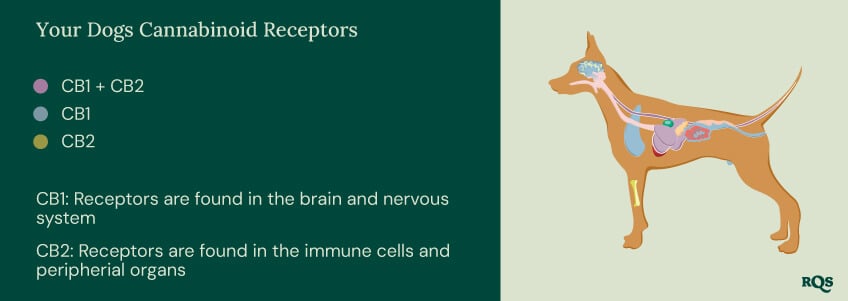
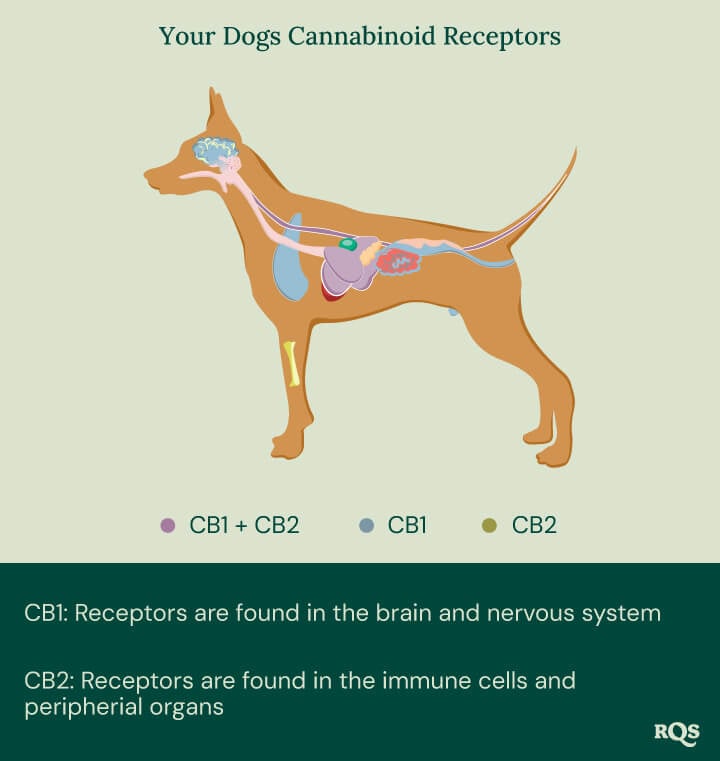
How Do Dogs Get Accidentally High?
Dogs can accidentally get high in a number of ways, from ingesting THC-infused treats to inhaling secondhand smoke while their owners are blazing blunts and bongs. Check out the main ways your dog is likely to get high.
Edibles
Edibles refer to any dish or snack that’s infused with THC and other cannabinoids. In humans, edible cannabis produces a profound psychoactive effect, as the liver converts THC into the more potent metabolite 11-hydroxy-THC.
Not only are cannabis edibles toxic to dogs because of their THC content, but other ingredients, such as chocolate, can also make dogs seriously ill.
Decarboxylated Weed
After buds are exposed to sufficiently high temperatures for a specific amount of time, they become decarboxylated. Cannabis users often decarb their flowers in the oven before making edibles to “activate” the material. Prior to decarboxylation, THC exists as the non-intoxicating cannabinoid acid THCA. During the decarbing process, the additional carboxylic acid group on the THCA molecule ejects, leaving THC behind. If your dog somehow manages to consume decarbed weed, you can expect them to become intoxicated and possibly ill.
Secondhand Smoke
If you’ve ever crammed yourself into a hotbox alongside numerous other smokers, you’ll know just how high you can get from secondhand smoke. The same applies to dogs, except the effect is much more profound. Those cautious of the health of their canines make sure to smoke in a different, well-ventilated room, if not outside. The more careless or forgetful among us may end up lighting up a room with their dog inside. Combust enough weed in a short amount of time, and you'll notice your dog starts to act differently than normal.

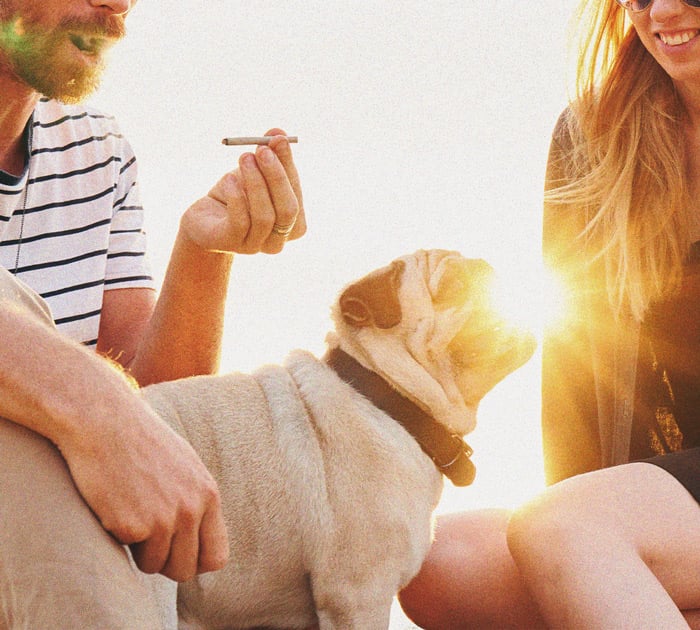
What About Raw Cannabis?
Your dog shouldn’t get high if they manage to wolf down a couple of non-decarboxylated cannabis flowers. Raw buds, even those high in THCA, contain negligible amounts of THC before exposure to heat. However, vets state that raw weed can still produce a toxic effect[2] in dogs. Although THCA doesn’t bind to CB1 receptors in the same way as THC, raw weed can make dogs sick in the same way as ingesting a large number of inedible plants can.
What About CBD for Dogs?
Although THC and raw cannabis can cause adverse effects in dogs, many canines benefit from CBD—a non-intoxicating cannabinoid found in the plant. The ever-growing range of CBD products for pets includes treats and topicals. Owners use these products in an attempt to soothe their dog’s physical discomfort and reduce tension. However, CBD can still produce a number of side effects[3] in some dogs, including dry mouth, reduced blood pressure, and drowsiness.
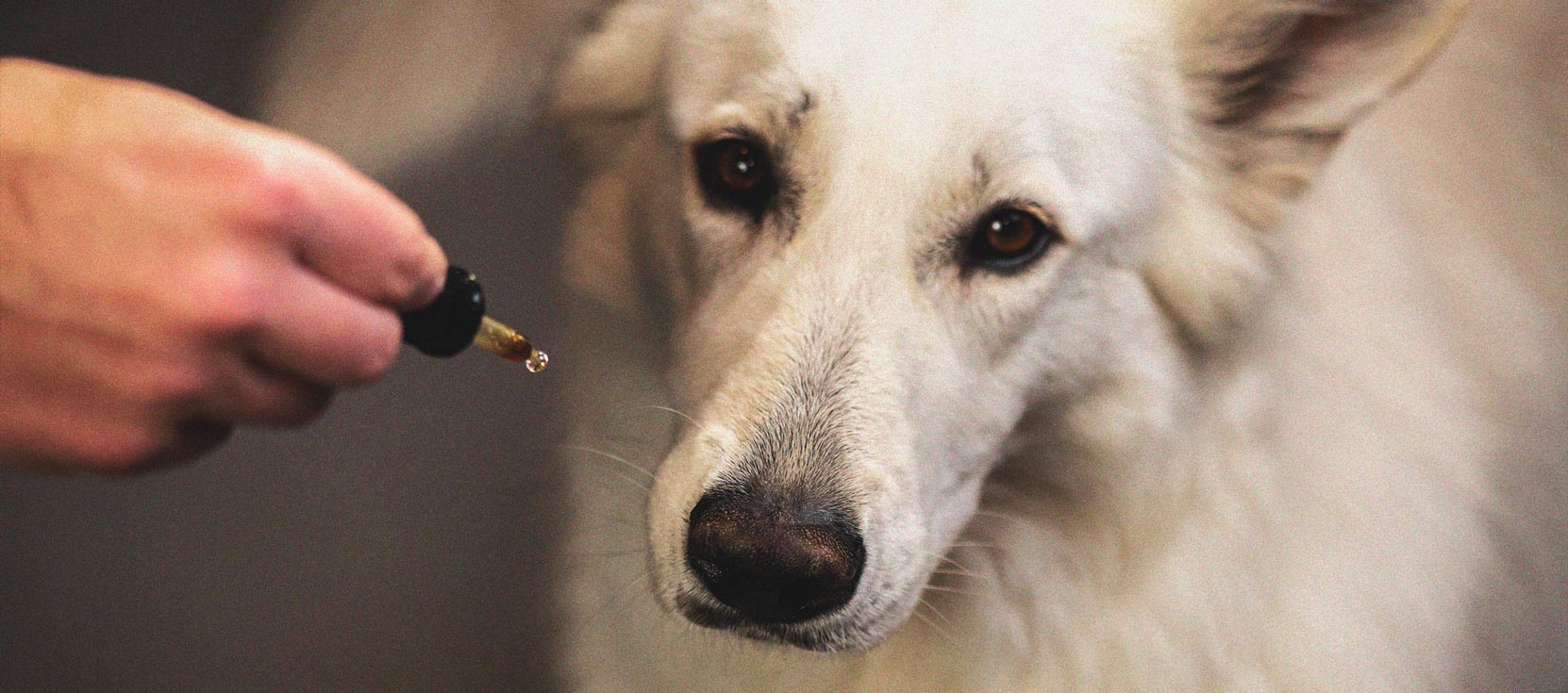
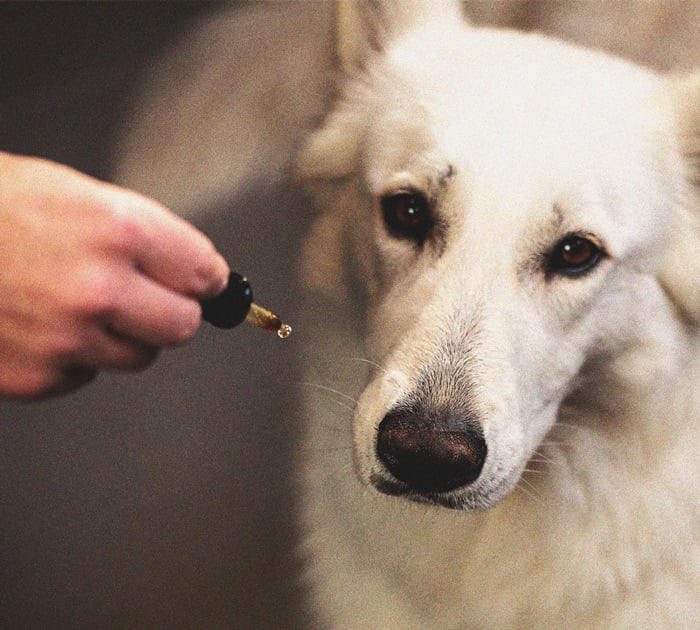
What Happens if Your Dog Eats Weed?
Cannabis affects different dogs in different ways; variables such as age, health status, and body size all influence the outcome. While rarely fatal, eating or inhaling THC can cause some dogs to become seriously sick. Owners can also experience a lot of worry after seeing a shift in their dog’s behaviour if they become stoned. So, what should you do if your dog gets high? Discover the signs to look for and the course of action you should take.
Signs That Your Dog Has Eaten Weed
If your dog gets stoned, you might notice a change in behaviour and several key signs. These include:
- Twitching and tremors
- Lethargy
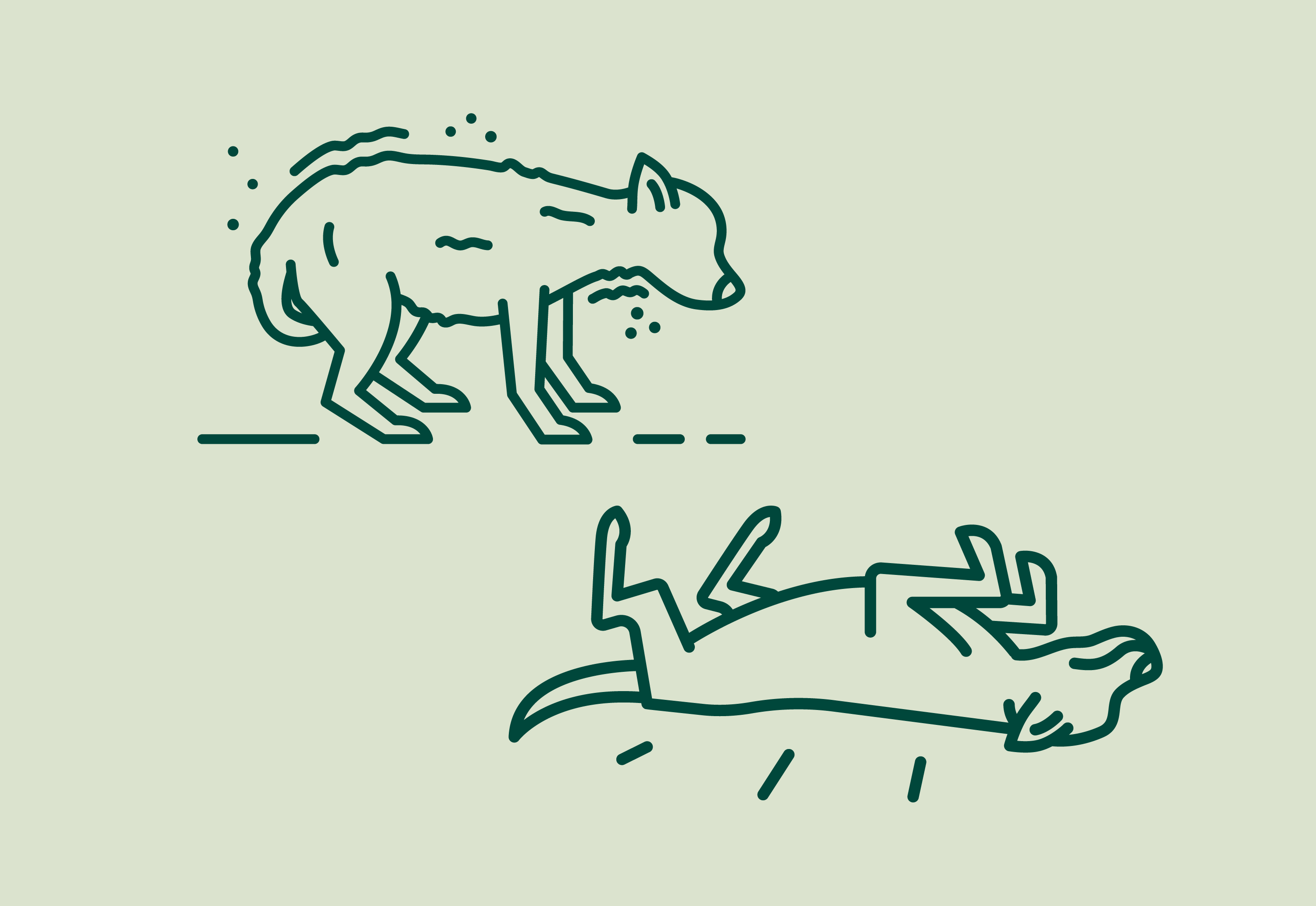
- Involuntary urination
- Hyperactivity
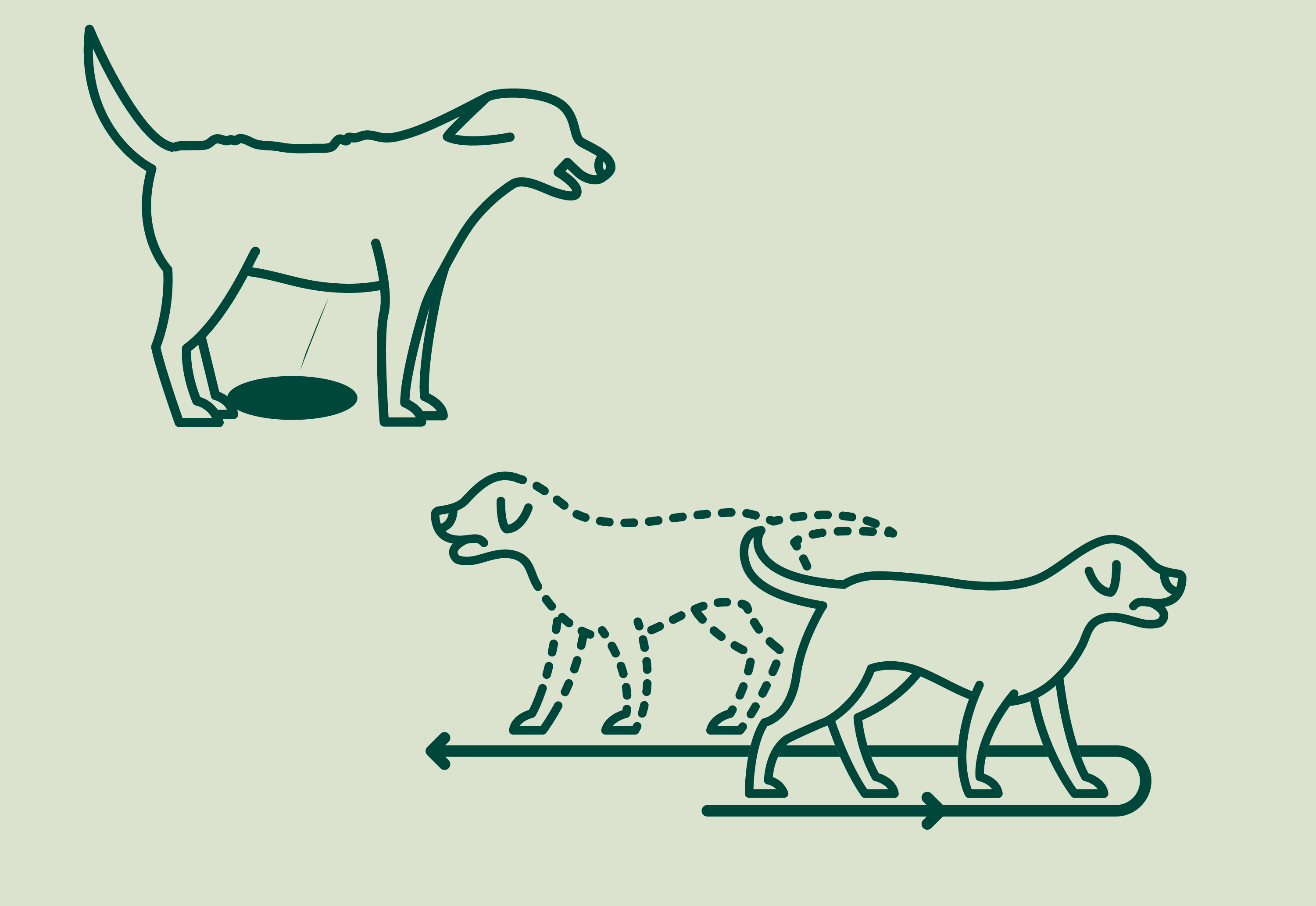
- Drowsiness
- Disorientation
- Coma
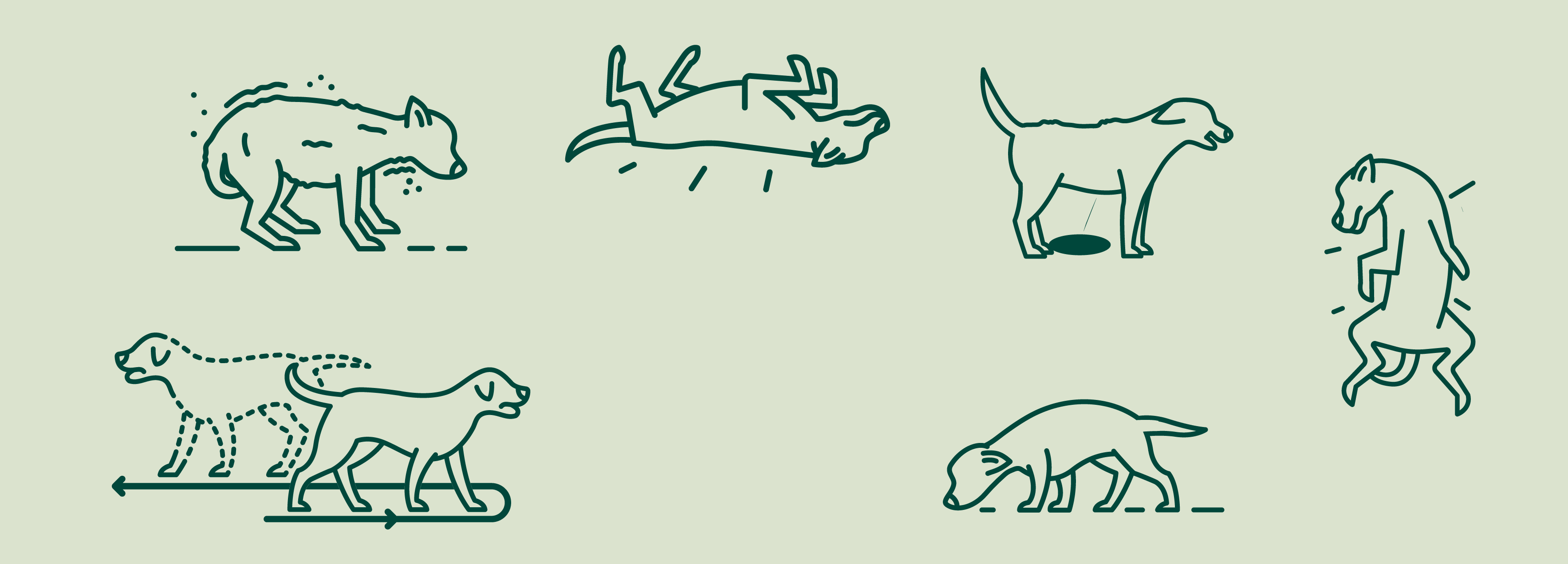
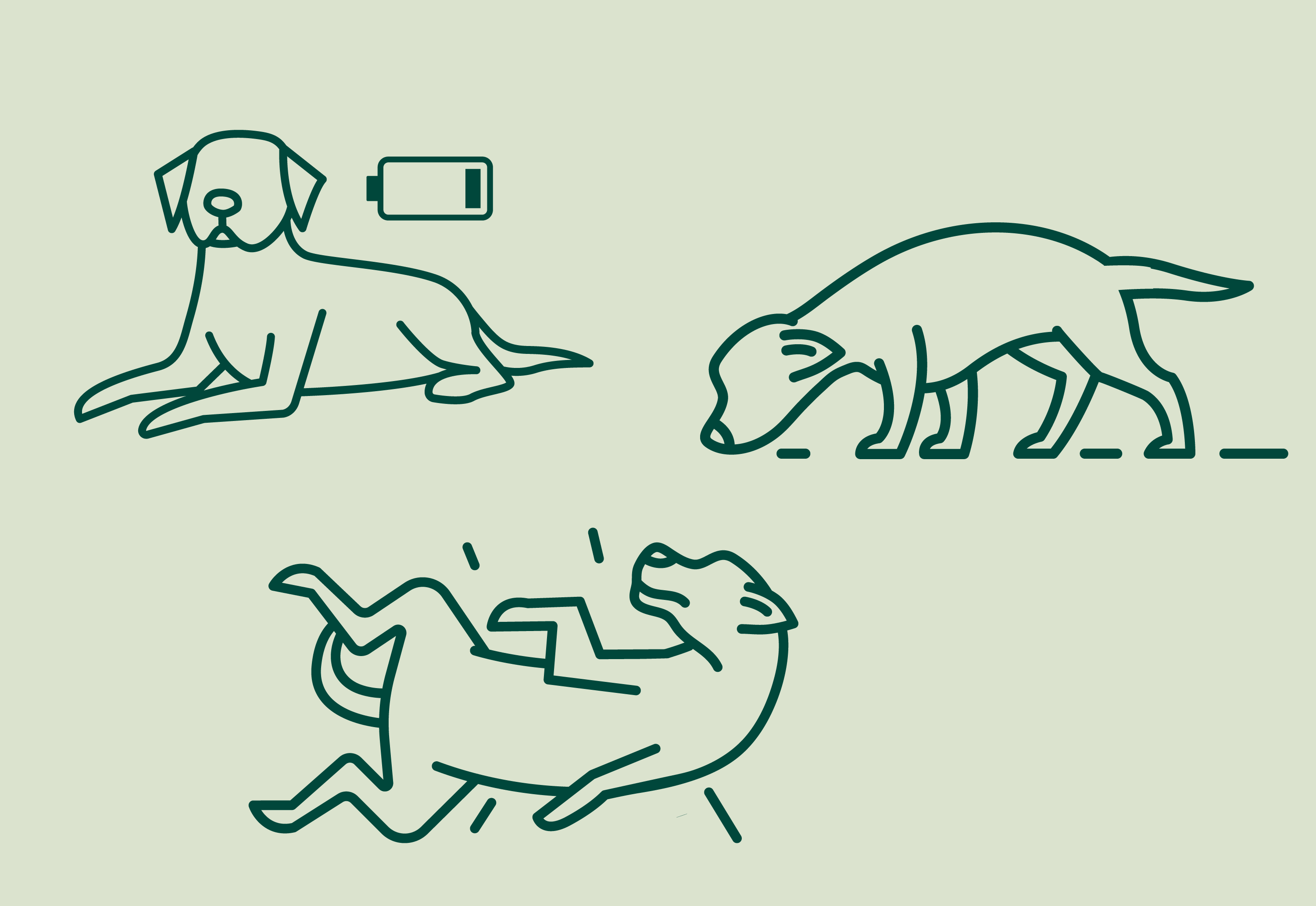
What to Do if Your Dog Gets High
We get it; you probably feel irresponsible and even guilty, but you shouldn’t put off bringing your dog to the vet. You owe it to your furry friend to help them through this hard time and get them all the help that they need. Chances are, you don’t know exactly how much THC your dog has ingested or inhaled. Although the symptoms might not seem severe immediately, they could progress.
How Do Vets Treat Dogs That Ate Weed?
Once you arrive, the vet will examine your dog to assess the seriousness of the situation. If they appear to have ingested or inhaled a minimal amount of THC, your vet will offer tips on how to get your dog unstoned at home (more on that below). However, if your dog seems particularly ill, the vet will take their blood pressure and also conduct blood work and urinalysis tests to monitor organ function.
If the results of these tests indicate that your dog’s in trouble, the veterinary team will administer the appropriate treatments. These could include fluids, cardiovascular support, and anti-nausea medication.

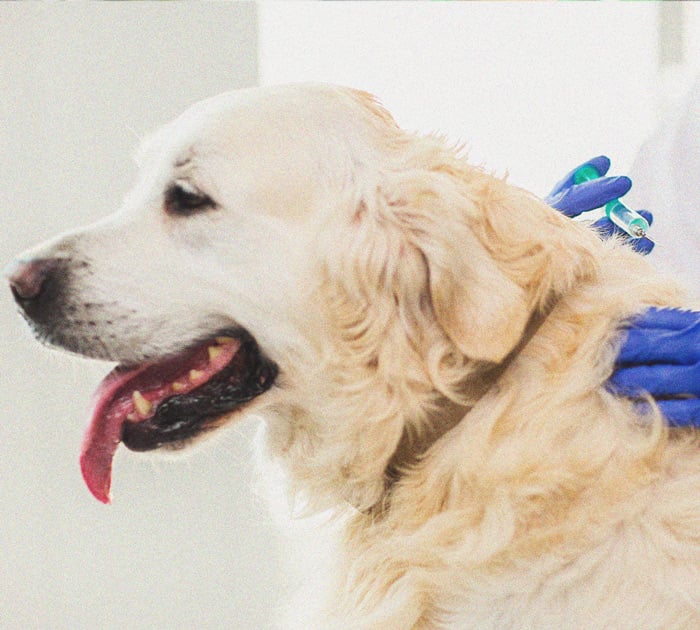
What to Do Once You’re Home
Whether the vet discharged your dog immediately or after tests and treatments, you can help your pooch by extending care when they arrive home. First of all, follow any instructions from your vet. Past that, provide emotional support for your dog, as they’re likely feeling shaken up from being stoned and having to go to the vet.
Your dog might also still feel stoned at this point. Make sure they’re warm and snug, with plenty of food and water available. If they’re still experiencing bouts of involuntary urination, encourage them to lie down on a patch of puppy training mats.
Once your dog seems settled, you also need to reassess where you keep your weed and how you use it. Lock away your edibles and buds in tightly secured containers, and place them high up in cupboards. Never leave your gear lying around, and never smoke weed with your dog in the same room.
How to Help Your Dog Recover From Being High
What else can you do to get your dog unstoned? Your pet could experience symptoms for up to 24 hours, so you need to stay attentive until all signs of intoxication have passed. Continually cuddle them, if they’re in the mood for it. As well as offering them some of their favourite treats, make sure they get a couple of full meals. Bland foods, such as boiled chicken and white rice, will keep them full without agitating their stomach.
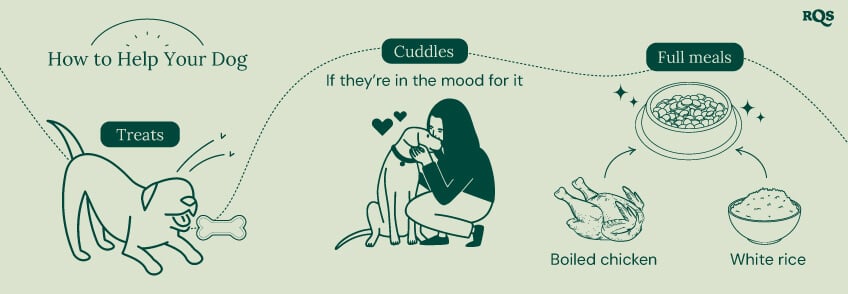
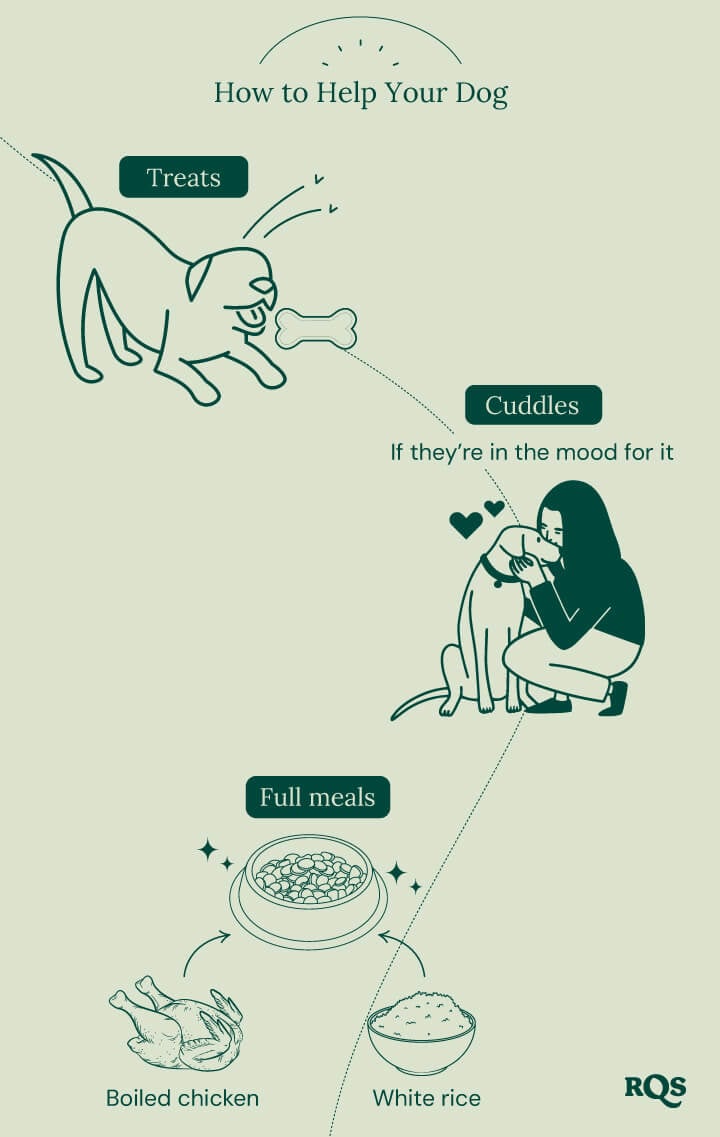
Tips for Owners to Remain Calm
Watching your dog become lethargic and even unconscious after consuming cannabis will leave you feeling shaken. However, your pet needs your help. Remain level-headed and get your pet to the vet as soon as possible. You need to act quickly, but also know that it’s rarely lethal for dogs to consume cannabis.
You may also feel guilty after seeing your dog royally stoned, and exhausted after that visit to the vet. First things first: breathe. Accidents happen. But you need to learn from what happened and ensure it doesn’t happen again. Take the necessary steps to make your weed stash dog-proof, and keep your pooch at the forefront of your mind whenever you make edibles and use cannabis in the house.
Dogs and Weed: Q&A
- What do dogs feel when they get high? 🪐
- We don’t know their subjective experience. However, symptoms of nausea, shaking, and disorientation probably make it an undesirable experience.
- How long does a dog’s high last? 🕒
- Between 18–24 hours.
- Does my dog’s size make a difference? 🐩
- Yes. Larger dogs can tolerate higher quantities of THC; smaller dogs are more likely to become ill if they consume the same amount.
- Can dogs die from weed? 💭
- Although rare, large amounts of THC can be fatal for dogs.
- How do vets treat marijuana intoxication in dogs? 👩⚕️
- They’ll test blood pressure, blood, and urine, and may administer fluids, cardiovascular support, and anti-nausea medication.
Cannabis Toxicity In Cats
Although cannabis intoxication mostly affects dogs, with canines involved in 96% of cases[2], cats also experience this condition from time to time, making up 3% of cases. Cases of cannabis toxicity in cats also result from ingestion of cannabis products or exposure to smoke. Not as much is known about cannabis toxicity within cats. For example, the metabolic pathway is mostly unknown, as is the minimum lethal dose.
The signs of cannabis intoxication in cats can vary, and are sometimes quite extreme. Symptoms include disorders of consciousness, coma, convulsions, ataxia, depression, agitation, anxiety, vocalisation, hypersalivation, diarrhoea, vomiting, bradycardia, tachycardia, hypothermia, and mydriasis.
The route of action is the same as mentioned for dogs. Call the pet poison helpline for further advice based on symptoms.
Preventing Your Pets From Accessing Cannabis
Some of the easiest ways to prevent your dog or cat from ingesting THC is by minimising and eliminating any potential exposure. Smoking in a different room and securely storing cannabis edibles and products will minimise access. If you are growing indoors, secure your grow room to prevent your pets from entering the space and potentially chowing down on leaves and flowers. If you are growing outdoors, you can take several steps to secure your garden, such as fencing.
Medicinal Cannabis For Pets
Not all cannabis exposure is bad for pets. In fact, there is a huge emerging market revolving around CBD for animals. The presence of the endocannabinoid system within cats and dogs is why large accidental doses of THC can be potentially dangerous, and it's also the reason why people use CBD to encourage the well-being of their furry friends.
The non-psychotropic cannabinoid CBD is gaining traction within the (relatively new) world of infused pet treats. However, not much is known about the exact effects of cannabis molecules on pet health, so the best thing to do when looking to administer CBD to your pets would be to have a conversation with your veterinarian.


























